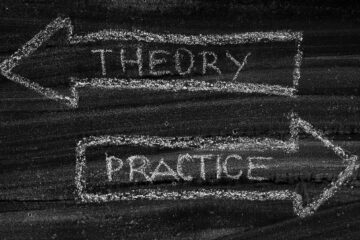 Learning from Other Countries:
Learning from Other Countries:
Shanghai education officials are partnering with the United Kingdom’s Department for Education and sending local teachers to teach at British schools, according to Shanghai Daily. Starting in September, 60 English-speaking teachers from Shanghai will work in 30 UK schools to demonstrate their teaching methods to local staff. At the same time, two leading math teachers from each of the 30 UK schools will work in schools in China in order to learn their teaching approaches and then share what they have learned with their colleagues back home. In the 2012 PISA tests, Shanghai students ranked first in mathematics while England ranked 26th. A number of Asian countries, such as Singapore, have been paying to send classroom teachers to top-performing countries for years, whereas many countries in the West have limited such trips to high officials, another indication that many Asian countries rely more on their classroom teachers than many other countries do to lead the school reform process.
Curricula and Systemic Reforms:
Here is a look at how some of the top-performers are working to reform their curricula and vocational and technical education offerings in order to better meet the evolving needs of today’s students. Albert, Canada will be overhauling its curriculum completely over the next two years with the goal of creating “engaged thinkers”, “ethical citizens” and “entrepreneurial spirits”. The idea is based on “discovery learning”, or a system in which students learn on their own with minimal teacher guidance. There are critics, like University of Manitoba math professor Robert Craigen who calls it “misguided” and says, “children need structure and input.” Critics also suggest there is little research behind this method and suggest that students need some feedback and scaffolding of their learning. To read more, see the National Post.
A panel reviewing Japan’s teaching manual is proposing adding moral education as a subject for elementary and junior high school students. This proposal follows another proposal made in December suggesting that ethics be included in the next set of approved textbooks due out in 2015. Previous proposals to add ethics have been rejected on the basis of forcing values on school children, but this wave of proposals is meant to counteract the rise in bullying and juvenile crime. To read more, see the Japan Daily Press.
Estonia has made significant progress introducing computing into the school curriculum to help them become an information technology driven economy, break down gender stereotypes in technology-focused courses and use computing to teach creative problem solving. Other countries like the UK and Singapore are following their lead and integrating coding into their school curriculum. For more, see the New York Times and this month’s Global Perspectives feature.
 Chinese deputy Education Minister Lu Xin said China would quicken the pace of building a “world class” vocational education system by 2020. She specifically supported giving vocational schools more independence and supporting joint ventures between schools and businesses to recruit and teach students. For more information, see Shanghai Daily.
Chinese deputy Education Minister Lu Xin said China would quicken the pace of building a “world class” vocational education system by 2020. She specifically supported giving vocational schools more independence and supporting joint ventures between schools and businesses to recruit and teach students. For more information, see Shanghai Daily.
New Resources and Reports
The OECD just released, “Equity, Excellence and Inclusiveness in Education Policy: Lessons from Around the World”. The report was drafted by Andreas Schleicher, Acting Director for the OECD Directorate of Education and Skills and Special Advisor on Education Policy to the Secretary-General, and was designed to contribute to the 2014 International Summit on the Teaching Profession, held in Wellington, New Zealand. This study highlights key factors that contribute to effective student learning outcomes including high-quality teaching and leadership, meaningful student assessment, and the professional development and retention of top performing teachers. It looks at how countries are strengthening equity and excellence in their education systems by placing high-quality teachers in schools in low-income areas and creating learning environments that address the needs of all students.
Also from the OECD, a new brief examining the link between student perseverance and performance. When students believe that working hard will make a difference in their studies, they score significantly higher in mathematics, according to this month’s PISA in Focus. For example, in as many as 25 countries and economies, students who have greater perseverance score at least 20 points higher in math than students who reported lower levels and in Finland, Iceland, South Korea, New Zealand, Norway and Taiwan, this difference is larger than 30 score points. In many cases, students with greater stamina, perseverance, and capacity for hard work are more likely to succeed than those who are talented but don’t set ambitious goals or stay focused on achieving them. The finding that large proportions of students in most high-achieving countries believe that student achievement is mainly a product of hard work rather than inherited intelligence suggests that values play a larger role in student success than inherited ability.
A new background paper prepared by the Australian Institute for Teaching and School Leadership (AITSL) for the Asia Society’s Global Cities Education Network calls for a more coherent approach to initial teacher education and induction. The report, Early Teacher Development: Trends and Reform Directions, identifies six main principles for developing a professional culture of learning, performance and development: support from an appropriately skilled and supported mentor, opportunities for professional support and discussion, opportunities to observe and learn from other teachers, evaluation of and feedback on teaching that forms the basis for further development, evaluation and improvement of the program itself, and continuity between these career stages including a common vision of effective teaching. Read the full report here.
The University of Hong Kong has published a monograph on the shadow education sector and private tutoring in Asian countries, “Tutoring for Public Good: Policy Options for Supplementary Education in Asia”. The research is a result of collaboration between the University, UNESCO and the Asian Development Bank. The book examines the different formats of private supplementary tutoring, from one-to-one provision to large classes, to tutoring from teachers, specialist companies and university students. Possible regulatory and policy responses to the development of the shadow education sector are discussed in the publication.
The World Bank has revamped their EdStats website to make education data more available, accessible and easier to digest. The portal enables policymakers and researchers to examine key education indicators across countries and make international comparisons. The online tool can pinpoint positive outcomes and strengths as well as gaps and bottlenecks in a country’s education system and provides evidence to inform policy changes. The Edstats portal also provides information on World Bank’s education projects and on the outcomes of impact evaluations of selected education interventions. Read more about the initiative here.




